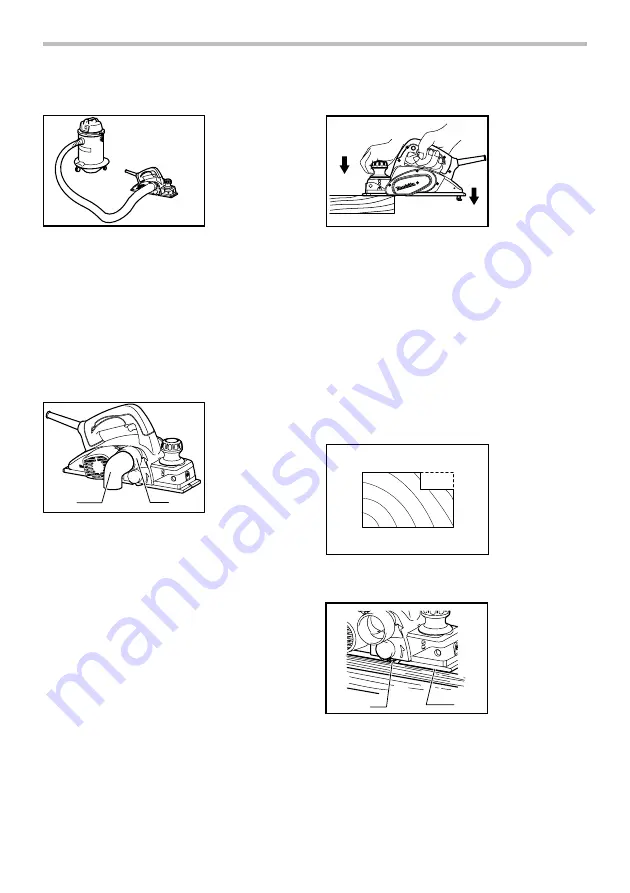
8
Connecting a vacuum cleaner
010176
For tool without nozzle
When you wish to perform clean planing operation,
connect a Makita vacuum cleaner to your tool. Then
connect a hose of the vacuum cleaner to the nozzle
(optional accessory) as shown in the figures.
For tool with nozzle
When you wish to perform clean planing operation,
connect a Makita vacuum cleaner to your tool. Then
connect a hose of the vacuum cleaner to the nozzle as
shown in the figures.
Elbow (optional accessory)
1
2
010177
Use of elbow allows change of chip discharge direction to
perform cleaner work.
For tool without nozzle
Remove the chip cover and install the nozzle (optional
accessory). Attach the elbow (optional accessory) on the
nozzle of the tool by just slipping on it. To remove it, just
pull it out.
For tool with nozzle
Attach the elbow (optional accessory) on the nozzle of
the tool by just slipping on it. To remove it, just pull it out.
OPERATION
Hold the tool firmly with one hand on the knob and the
other hand on the switch handle when performing the
tool.
Planing operation
1
2
010178
First, rest the tool front base flat upon the workpiece
surface without the blades making any contact. Switch on
and wait until the blades attain full speed. Then move the
tool gently forward. Apply pressure on the front of tool at
the start of planing, and at the back at the end of planing.
Planing will be easier if you incline the workpiece in
stationary fashion, so that you can plane somewhat
downhill.
The speed and depth of cut determine the kind of finish.
The power planer keeps cutting at a speed that will not
result in jamming by chips. For rough cutting, the depth of
cut can be increased, while for a good finish you should
reduce the depth of cut and advance the tool more slowly.
Shiplapping (Rabbeting)
002580
To make a stepped cut as shown in the figure, use the
edge fence (guide rule) which is obtained as accessory.
1
2
010181
Draw a cutting line on the workpiece. Insert the edge
fence into the hole in the front of the tool. Align the blade
edge with the cutting line.
1. Blade edge
2. Cutting line
1. Start
2. End
1. Elbow
2. Nozzle












